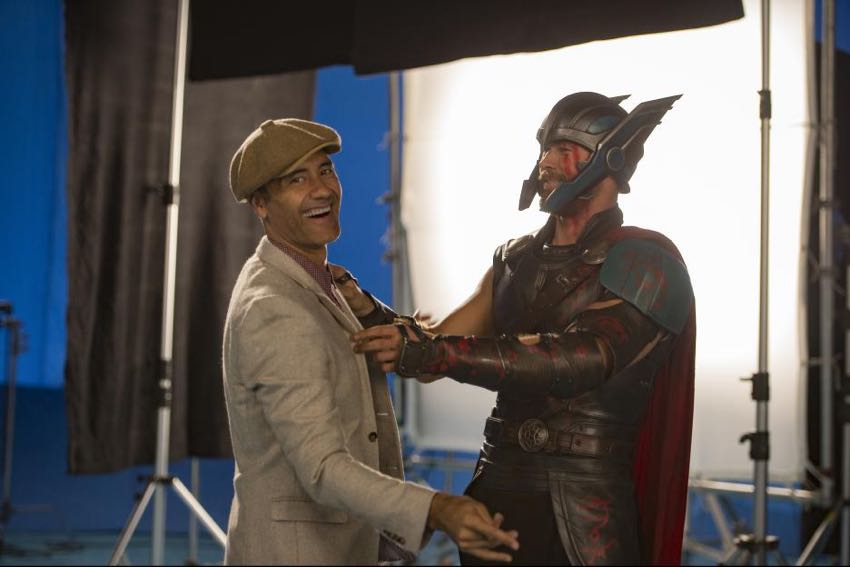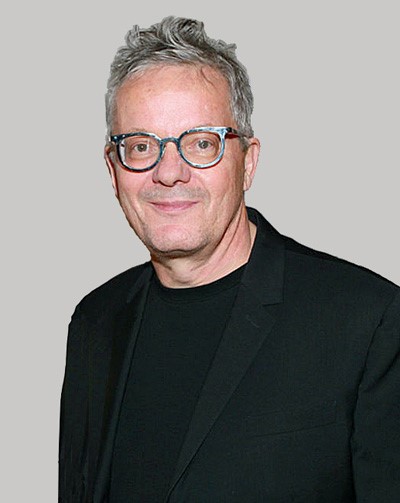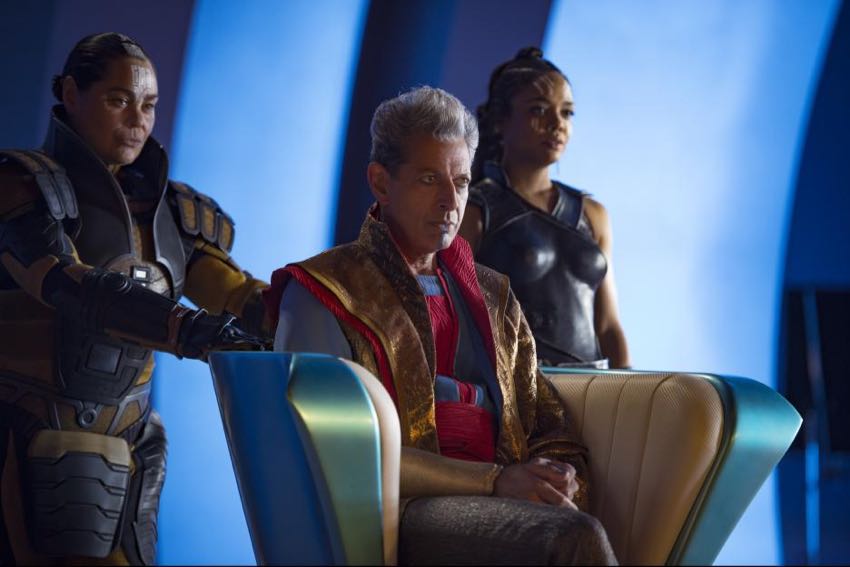Devo’s Mark Mothersbaugh Brings 70s Synth Sound to 'Thor: Ragnarok'
- Details
- Category: Interviews
- Created: Thursday, 09 November 2017 00:06
- Published: Friday, 10 November 2017 18:45
- Written by Lupe R Haas

THOR: RAGNAROK director Taika Waititi brought an unorthodox approach to the third Marvel movie in the THOR franchise visually, story-wise and musically. Devo frontman turned composer Mark Mothersbaugh was the perfect choice to score Waititi’s quirky and colorful take on the superhero genre, and CineMovie is talking to the musical icon.
Visually THOR: RAGNAROK is a throwback to classic sci-fi adventures of the 70s and 80s, and so is the film score. For the music, Marvel and Waititi brought in Devo’s Mark Mothersbaugh, the man behind the American post-punk band that introduced electronic rock in the 70s and 80s. Devo’s sound and on stage performance were very futuristic and heavy on the science fiction influence. Dev led the way for new wave, industrial and alternative rock.

Mothersbaugh tells CineMovie he was first exposed to the New Zealand filmmaker through his film HUNT FOR THE WILDER PEOPLE and he admired his minimalist approach to the score. Ironically a few weeks later he received the call from Marvel about working with Waititi. It was a match made in heaven.
“He was as eccentric and amazing as I hoped he would be. It was a terrific experience. He’s a good artist and we need artists in this town.”
Taika and Mothersbaugh were on the same page for THOR: RAGNAROK’s music direction.
“From early on, Taika and I decided to up the ante for the score of the Marvel movie. I knew I would pay homage to the sounds that came before me and I would have to be in the world of big, giant orchestra with a choir on top of it, like a 100 piece orchestra. But we wanted to see what else we could bring to it.”
The Devo frontman admits he had a lot of freedom on the film as is the case on most of the projects he works on. He jokes composers have more freedom than actors. He had the most fun creating music for the planet of Sarkaar, the Grand Master’s (Jeff Goldblum) planet, calling it the “perfect location” for his sound. The wild, retro look of the planet and its inhabitants needed music to match it. He “indulged” in his creativeness for those scenes, and used heavy electronics.
“The Jeff Goldblum world is the place where I got to let go the most and to kind of look for new territory.”

Thor loses his hammer and gains new powers in RAGNAROK. Did Thor’s theme change along with his physical appearance? Mothersbaugh did do something different with the god of thunder’s theme. The composer looked no further than his basement located at his recording studio where he pulled out old road cases with synths from the 70s and used them in the score. He also unpacked a synthesizer, a gift from famed record producer, composer and former Roxy Music member Brian Eno.
“With that we put some of those sounds on top of things too. We kind of widened the terrain.”
For Hela’s (Cate Blanchett) theme, electronics are also an integral part.
Led Zeppelin’s classic, “Immigrant Song” is heavily featured in THOR: RAGNAROK, but it was director Taika Waititi who introduced the rock song. After he impressed Marvel’s Kevin Feige in the pitch meeting using the song, it became an integral part of the third THOR film.
Mark Mothersbaugh admits he’s not a fan of using familiar songs in movies.
“There was a time when I would get really irritated with songs because they always come in right when you want your theme to play the biggest and the best, that’s where your payoff is… it’s a love scene or the battle or some climax… that’s when they decide to put a song in and pull your score out.”
However, he understands both sides of the argument since his music has also been licensed for projects and sometimes they do bring “realism” to the story.
There’s nothing realistic about the fantasy adventure of THOR: RAGNAROK but that’s what makes it the most fun along with the film’s score courtesy of Mark Mothersbaugh.
THOR: RAGNAROK is now playing in movie theaters.